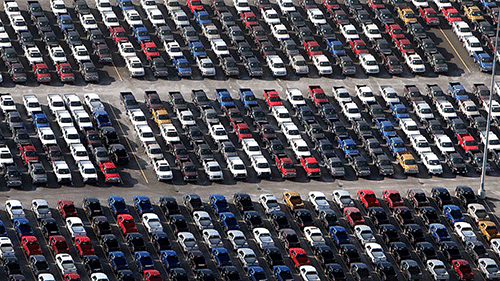Rising global prices of vehicle components and energy production, coupled with a weak Rand exchange rate, are likely to result in continued price increases for vehicles in Namibia.
This will, in turn, make it more expensive to purchase and operate cars for Namibians.
This depressive state of affairs has been brought to the fore by stock brokerage, Simonis Storm, which expects demand for new vehicles to start retreating, particularly as interest rates are still on an upward trajectory.
The latest Namibian sales figures from the National Association of Automobile Manufacturers of South Africa (NAAMSA) show that new vehicle sales dropped by 22.4% month-on-month (m/m) in July 2022 to 677 units, compared to 872 units sold in the prior month.
On an annual basis, Namibian vehicle sales declined by 15.3% year-on-year (y/y) in July 2022, dipping below its six-month moving average.
NAAMSA further indicated that passenger and light commercial vehicles had the largest share of units sold in July 2022 with a 56.4% and 39.3% share of all units sold, respectively.
On a monthly basis, extra-heavy and heavy commercial vehicles recorded the largest declines in sales.
Overall, vehicle sales during 2022 were trending above 2021’s levels until June 2022.
July’s data point is the third monthly and annual decline in vehicle sales, and it is the first time the number of units sold came in below levels seen in 2021.
There is an upward momentum to spare parts and accessories inflation rates, while prices charged for vehicle services and repairs remain muted.
Motorcar inflation rates have slowed to lower single digits during 2022, averaging 4.2% for the year-to-date, compared to 8.8% in 2021.
In previous reports, Simonis Storm Securities (SSS) cautioned that local car prices are likely to rise by between 3% to 5% per quarter, following discussions with various brands in Windhoek.
The figures also confirm that Toyota and Volkswagen remained dominant brands in the local automotive market, while seven brands accounted for 71% of total vehicle sales during July 2022.
A car sales report from SSS noted that European carmakers registered the lowest number of new vehicle sales during June 2022 since 1996.
This was according to data released by the European Automobile Manufacturers’ Association, showing vehicle sales decreased by 17% y/y in June 2022, with Volkswagen incurring the largest decline of 24% y/y.
While manufacturers such as BMW AG, Volkswagen and Mercedes AG indicated in May 2022 that semiconductor shortages eased, this will still take time for increased production and supply to reach global dealers with stock.
SSS further mentioned that geopolitics could be driving higher car prices as certain brands relocate their value chains.
Following the conflict in Ukraine, Renault sold its 68% stake in AvtoVaz (a state-backed entity in Russia) for one Russian Ruble.
Jeep announced in July 2022 it will close its plant in China, according to Bloomberg Intelligence.
SSS further warned that a potential war between Taiwan and China could see global supplies of semiconductors tumble.
“Globally, car manufacturers are still facing high raw material and energy costs, which contribute to vehicle price increases. Car prices have also increased across the world as carmakers focus their limited production on their most expensive and profitable models. In addition, energy shortages and potential energy rationing in Germany are driving concerns of plant shutdowns, worsening stock shortages globally,” read the SSS vehicle sales report for July 2022.
- ebrandt@nepc.com.na


